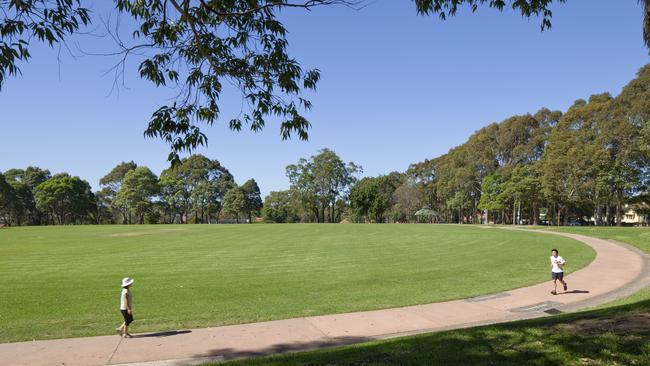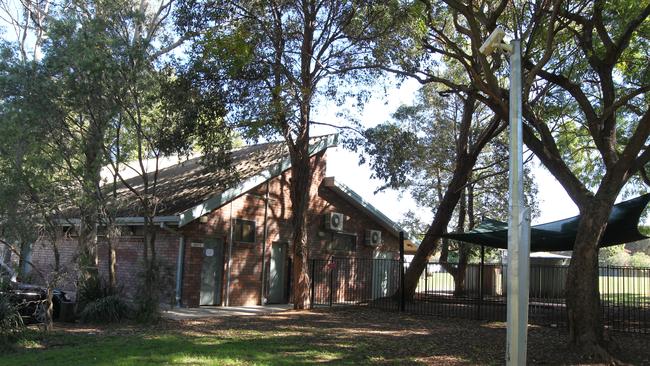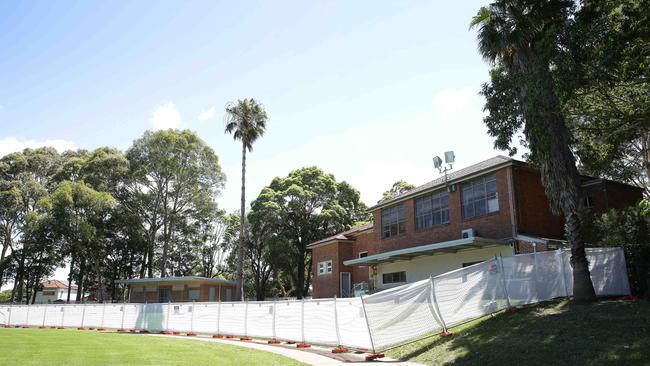Willoughby Council defends weedkiller use at north shore parks
A north shore council is defending plans to use a contentious form of weedkiller at two popular parks amid concerns from residents, sporting groups and a nearby childcare centre.

North Shore
Don't miss out on the headlines from North Shore. Followed categories will be added to My News.
- Planned St Leonards mega tower to be one of Sydney’s tallest
- Decision handed down on contentious heritage demolition
A north shore council has defended plans to spray a contentious form of weedkiller at two popular parks amid concerns from residents, dog walkers and a nearby childcare centre.
Signs alerting residents to the use of glyphosate to strip turf from Bales and Willoughby Parks has been meet with concerns over potential health and safety impacts on users.
Willoughby Council said the Wipeout Bio glyphosate product would be sprayed from Monday as part of plans to upgrade both parks with new durable turf over the coming months.

The council said a range of safety measures would be in place including two people “spotting” to keep people off the field during and after the spray.
But residents have raised alarm bells over potential impacts on users including dog walkers and sporting groups due to the use of glyphosate – the same chemical found in the contentious Roundup weedkiller.
Roundup, which has repeatedly made headlines over the past two years, was subject to a $78 million compensation payout from pharmaceutical giant Bayer to a groundskeeper who developed non-Hodgkin lymphoma after spraying the product in America.
In a notice to residents, the council pointed out Wipeout Bio “was not Roundup” and the product was approved for use in Australia – adding it would only be applied “per the manufacturer’s directions.”

“Our use of any chemical in the parks and reserves is sparing and targeted – and is the last resort where other control methods are not effective,” the council said.
“It is sprayed from a 30-40cm height off the ground, meaning it’s directed so we can use the least amount possible.”
The Glenaeon Rudolf Steiner Preschool, located next to Willoughby Park, has written to parents announcing it intends to steer clear of the oval for at least one week after the spraying is carried out.

The centre said the “prudent approach” was based on differing opinions over the potential safety impact of the product to humans.
“Willoughby Council suggests people can go back and play after 24 hours but we will take a more cautious approach as the children actually do sit down and play in the dirt among the tree roots,” the centre said.
In a statement, Willoughby Council said the ovals would be “safe to use after the product has dried.”
“The product dries within two hours, however, we’re keeping users off the oval for four hours after spraying to further mitigate risk,” a council spokeswoman said.
“There is plenty of space not being sprayed that the nearby child care/schools can use. We’re only spraying on the field, not near the trees.”
The council said alternative methods of weed control including “flame weeding” and “hot water treatments” are considered as part of its maintenance programs, however Wipeout Bio was deemed the “best option for these sites.”
“Ultimately, this project is to maintain and improve a community asset, which will have many benefits for users,” the spokeswoman said.
“We’ve previously used Wipeout Bio on Artarmon Oval, Mowbray Public School Oval, Beauchamp Oval, and Bicentennial Oval and on other projects over a number of years. These projects generated excellent community feedback.”
The use of the product has been met with dozens of comments on social media, with some residents saying people should be “more concerned about the chemicals under your sink.”
Those opposed, however, labelled its use in public areas as “ridiculous”.
“I will be getting my hubbie to take our dog elsewhere for their walk,” one resident said.
Willoughby councillor Lynne Saville has called for the council to reconsider the use of glyphosate.
“If there is another way of removing weeds – either manually or even steam removal – that would be far preferable especially given the number of dog walkers and sporting groups (that use the sites),” she said.
The move comes after Lane Cove Council last year announced it would continue applying glyphosate-based products after finding “there was no evidence to suggest the community is in any danger of being adversely impacted”.
“There are several alternative herbicides that can be used in place of glyphosate in certain situations, but there is no one herbicide that can replace glyphosate in all situations,” the council said.
Upgrades at Willoughby and Bales parks are due for completion in March next year.

